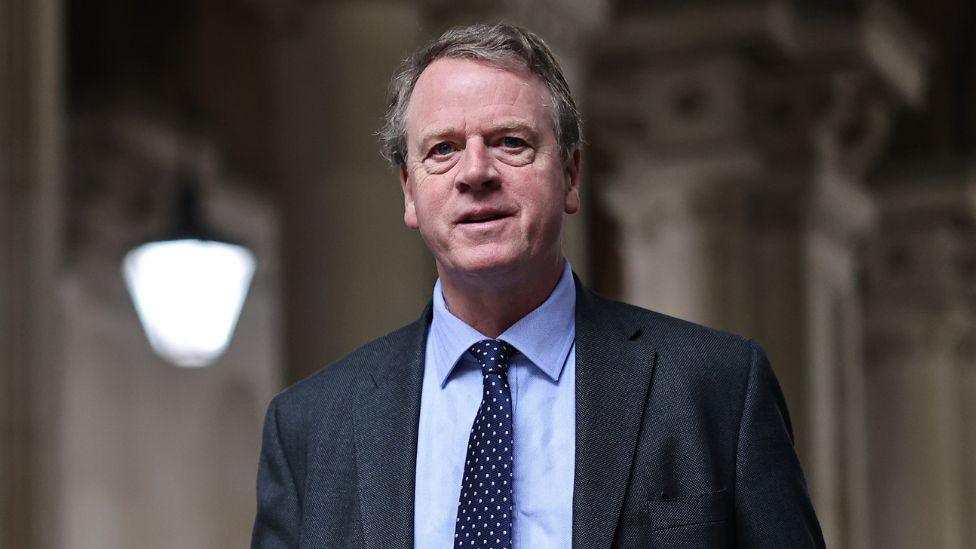Westminster to defend block on Scottish gender reform
- Published

Scottish Secretary Alister Jack blocked the legislation using a Section 35 order over its potential impact on UK-wide equalities laws
The UK government has said it will "robustly defend" its block on controversial Scottish gender reforms.
The proposals, which would allow people in Scotland to self-identify their sex, were passed by the Scottish Parliament in December.
Scottish Secretary Alister Jack blocked the law using a Section 35 order, citing concerns over its impact on UK-wide equality laws.
The Scottish government has launched a legal challenge to the block.
First Minister Humza Yousaf has described the decision by Mr Jack to use a Section 35 order as an "undemocratic veto".
It is understood that the Advocate General for Scotland, representing Mr Jack, informed the Court of Session in Edinburgh on Thursday that the UK government intended to contest the petition for judicial review, should the court decide to grant permission to proceed.
The Scottish secretary outlined his reasons, external for preventing the gender reforms receiving Royal Assent earlier this year.
A spokesperson said: "We are clear that the proposed legislation would have an adverse effect on reserved matters, including on the operation of the law as it applies to Great Britain-wide equalities protections."
The Scottish government wants the court to rule that there were not reasonable grounds for the legislation to be blocked using a Section 35 order - the first time it has been used since the Scottish Parliament was created in 1999.
Some senior SNP figures - including former leadership contenders Kate Forbes and Ash Regan - have opposed the decision to launch a court battle.
And former Supreme Court judge Lord Hope has said the Scottish government's chances of winning are "very low" and that the first minister risked wasting a lot of time and money by taking the issue to court.

Humza Yousaf has said he was not prepared to accept a Westminster "veto" of laws passed by the Scottish Parliament
Speaking to journalists at Holyrood on Thursday, Mr Yousaf was asked how much money he would be prepared to "waste" on the court challenge.
He said: "It is not a waste. I engaged in this court process because I'm not prepared to accept a Westminster veto over legislation that was passed by a majority.
"I won't say much more of course because we have engaged in that court proceeding."
The reforms are intended to make it easier for people to change their legally-recognised sex by doing away with the need for a medical diagnosis of gender dysphoria - a sense of unease that a person may have because of a mismatch between their biological sex and their gender identity.
Applicants for a gender recognition certificate would need to have lived in their acquired gender for three months rather than the current two years.
And the minimum age that someone can apply to change their sex will be cut from 18 to 16 - although 16 and 17-year-olds would need to have lived as their acquired gender for six months rather than three.
- Published12 April 2023

- Published18 January 2023